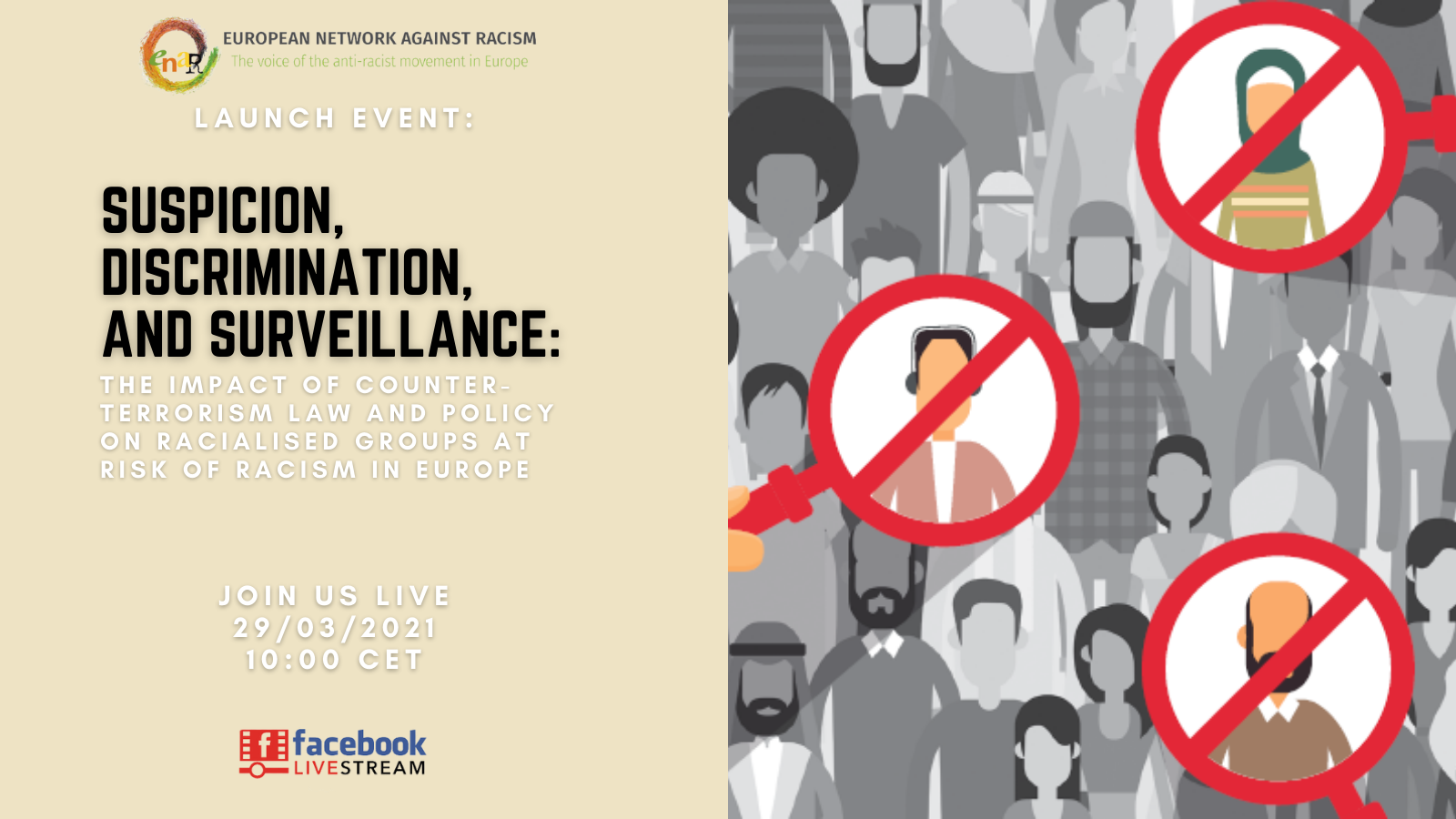
The EU’s Counter-Terrorism measures continue to perpetuate institutional discrimination with serious impacts on racialised groups, ENAR report finds
Press Release
Brussels, 26/03/2021 – The EU’s Counter-Terrorism measures continue to perpetuate institutional discrimination with serious impacts on racialised groups, ENAR report finds.
Our report draws on desk research and 211 interviews in 5 Member States (France, Germany, Hungary, Poland, and Spain)
- EU counter-terrorism measures lead to greater surveillance and policing of racialised groups across Europe
- The development of EU counter-terrorism and counter-radicalisation policies and practices are grounded on prejudices about Muslim communities
- Racialised groups are disproportionately affected in their exercise of fundamental rights and freedoms
The 2017 Framework Directive on Combatting Terrorism requires the European Commission to submit a report by September 2021 on the Directive’s impact “on fundamental rights and freedoms, including on non-discrimination, and the rule of law”. On 9 November 2020, the EU published its counter-terrorism agenda, following announcements and statements at a national level, suggesting a greater surveillance and policing of all across Europe.
Ahead of the review, the European Network against Racism’s report finds that key elements of the counter-terrorism and counter-radicalisation measures constructed, sustained, and reinforced the perception of Muslims as a potential security threat. However, ENAR’s analysis shows that the number of individuals charged in relation to ISIS-Al-Qaeda inspired terrorism between 2006 and 2019 amounts to 0.009% of European Muslims.
Author of the report, Tufyal Choudhury, said: “Through this research, we have seen the real implications of these security measures, and how the stigmatisation of certain groups can have a psychological and traumatic impact on individuals and communities. Policy making and subsequent practices in the field of counter-terrorism is a clear example of how prejudices can have structural impact in society.”
Karen Taylor, Chair of the ENAR board, added: “Our report shows the impact of counter-terrorism measures on the ability for communities to organise themselves. We have had reports from our members of greater surveillance and security that had an impact on human rights defenders and organisations and their ability to safeguard racialised groups and themselves.”
Despite the publication of the EU Anti-Racism Action Plan in September 2020, which highlights concerns on institutional forms of discrimination, European leaders still haven’t found an approach to counter-terrorism that does not stigmatise and racialise minority groups. Security should mean security against abuses and discrimination, including by institutions.
Karen Taylor concluded: “ENAR’s report reaffirms the need to have an antiracist approach to counter-terrorism and counter-radicalisation policies that ensures human rights, equality and long-term social inclusion are secured for all in Europe. We hope that this report serves as a significant tool for all stakeholders to re-evaluate their actions and priorities.”
For more information or to arrange an interview, contact:
Nabil Sanaullah, ENAR Communication and Press Officer
Mobile: +32 (0)475 988 585 – Email: nabil@enar-eu.org – Web: www.enar-eu.org
Notes to editors:
- The European Network Against Racism (ENAR aisbl) stands against racism and discrimination and advocates equality and solidarity for all in Europe. We connect local and national anti-racist NGOs throughout Europe and voice the concerns of ethnic and religious minorities in European and national policy debates.
- The ENAR report Suspicion, discrimination and surveillance report, impact of counter-terrorism law and policy on racialised groups at risk of racism in Europe, launches on March 29th at 10:00. Event agenda attached. Register to attend the event here.



